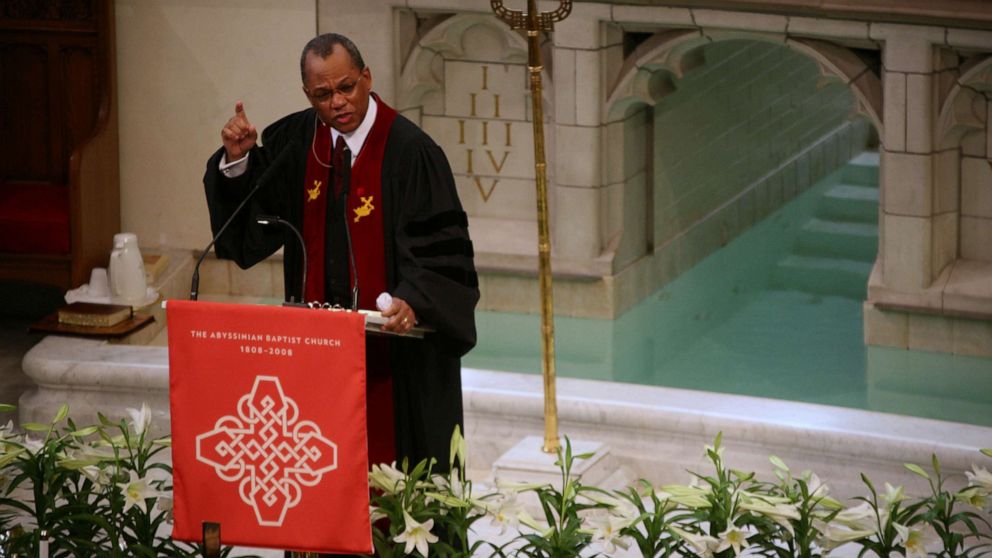How the Black church has been a rock for community and a catalyst for change
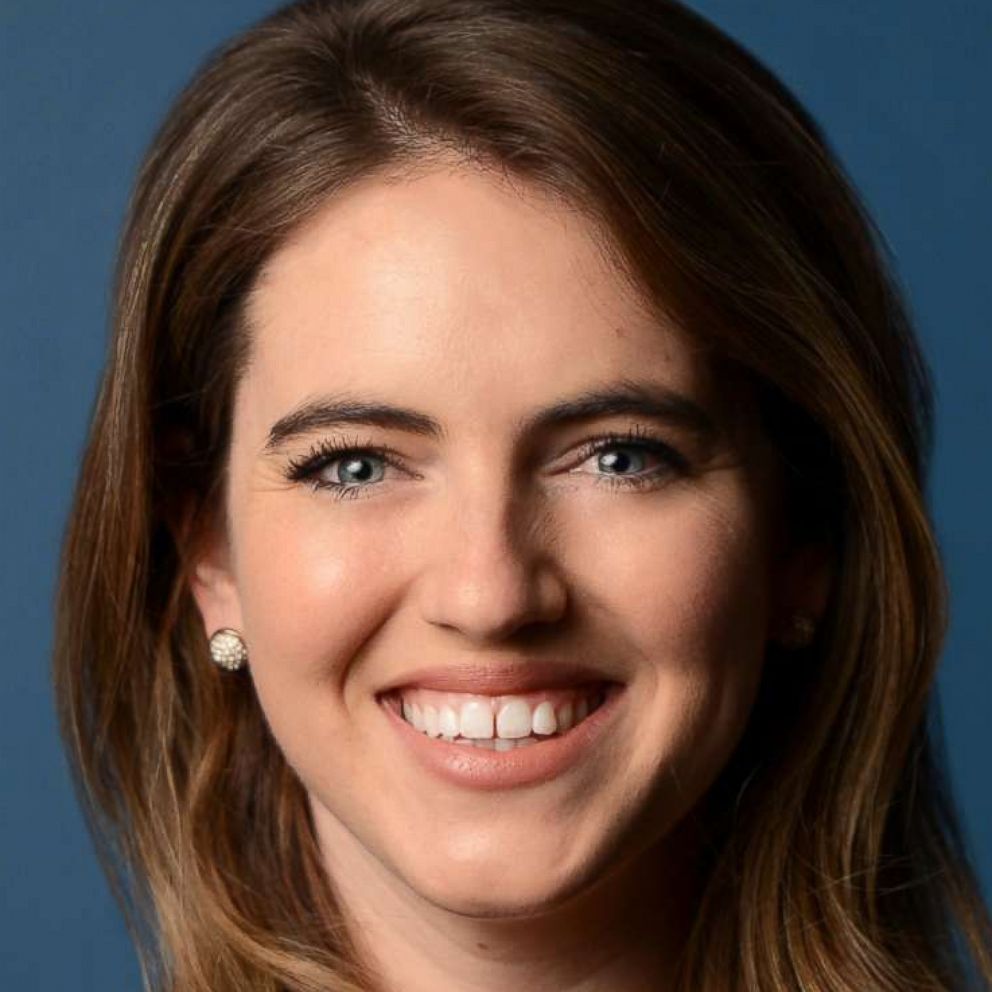
This year, Juneteenth falls 25 days after the death of George Floyd and 11 days after hundreds of friends, family members and dignitaries celebrated the memory of his life at The Fountain of Praise church.
The world watched as thousands gathered in Houston to honor Floyd at funeral services in his hometown and witnessed what Black America has long known for decades: that the Black church is more than a building -- it's a safe house for the soul.
Rev. Dr. Calvin Otis Butts, a pastor of the Abyssinian Baptist Church, spoke to Byron Pitts in an interview for ABC News' special "Juneteenth: A Celebration of Overcoming" about the centuries-old correlation between the early beginnings of the church and slavery.
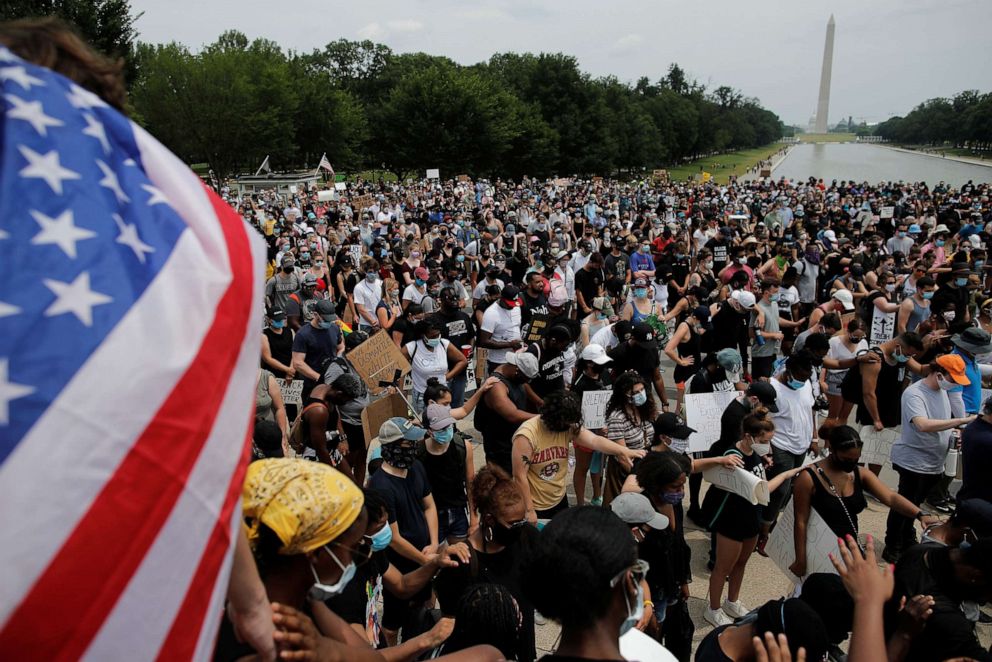
"We weren't allowed to communicate," Butts said. "So when we could get together down by the riverside, late in the evening, when the work was over, and call on our gods -- that's where it all came together."
He explained that the groans of slaves turned into chants and songs that helped transform the early Black church from a symbol to a structure, with full songs about religion and resistance.
The message of resistance in the church moved from the sanctuary to the streets to help drive the Civil Rights Movement in the 1960s.
Butts' house of worship in Harlem, New York, has celebrated the courage and complexities of the Black church for 212 years.
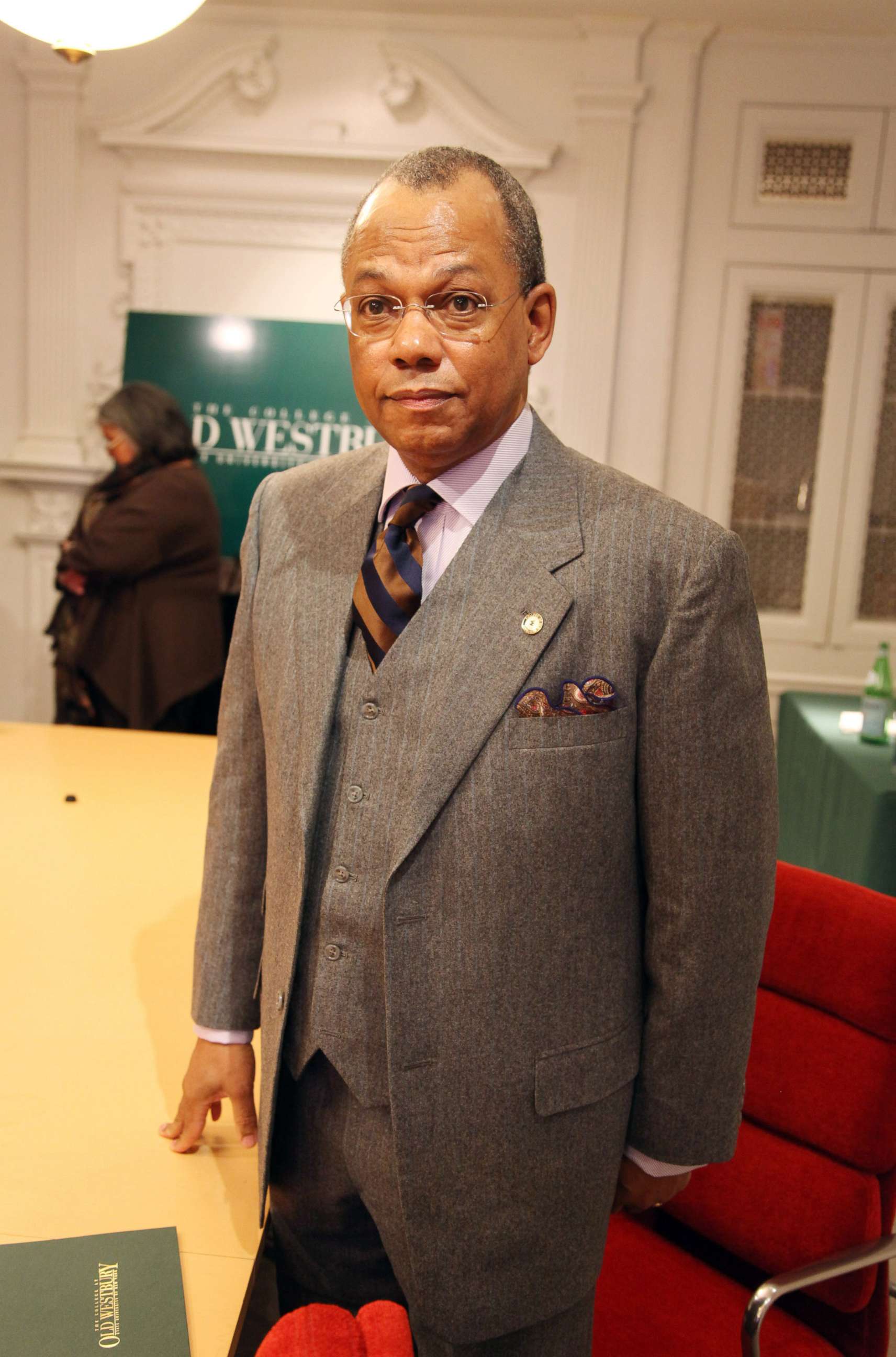
"The church provided social cohesion," he explained. "It was the first place of economic development, first place of politics, and who was the major spokesperson? Generally, the preacher."
Historically, women's voices were often overlooked in the church.
Dr. Almeda Wright, associate professor of religious education at Yale University, told ABC News there are "so many unsung or underrated Black female" leaders, some of whom indeed were clergy members.
Rev. Louise Rountree, an associate minister at Good Neighbor Baptist Church in New Jersey, explained to ABC News that it was women who often acted as a church's foundation.
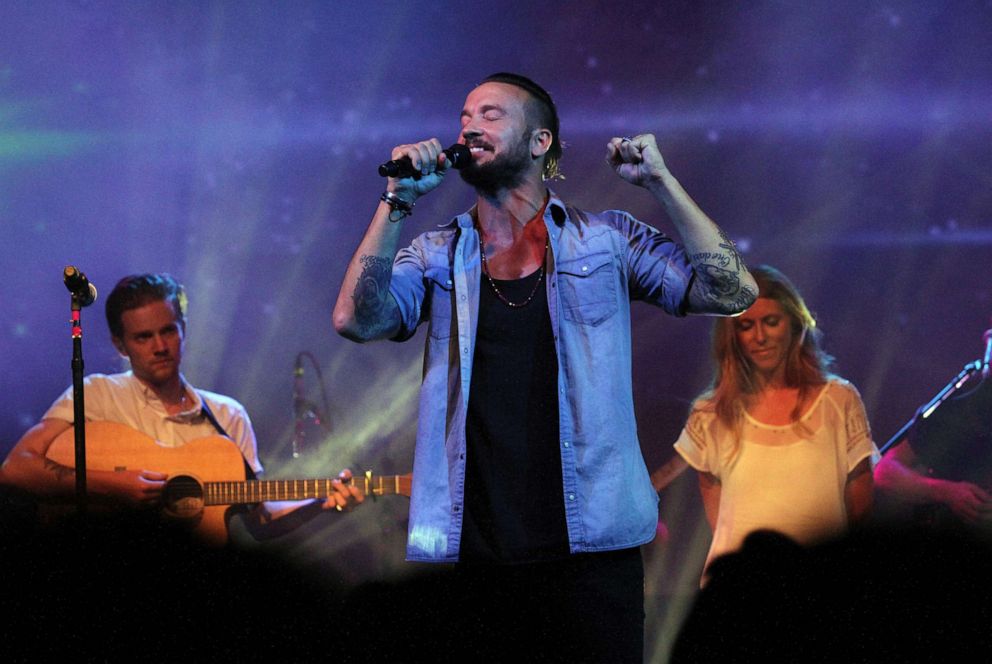
"If it weren't for the women doing the fundraisers and the women doing the praying and the women holding up the pastors, where would the church be?" she said.
The separateness of the Black church from white churches was in part dictated by segregation, which Martin Luther King Jr. famously summed up on "Meet the Press" in 1960.
"One of the shameful tragedies, that 11 o'clock on Sunday morning is one of the most segregated hours, if not the most segregated hour, in Christian America," King said.
But today, megachurches like Hillsong in New York City, where senior pastor Carl Lentz presides, thrive on building diverse congregations.
"I think the future is, is very loud, powerful Black voices and white voices," said Lentz, who's white.
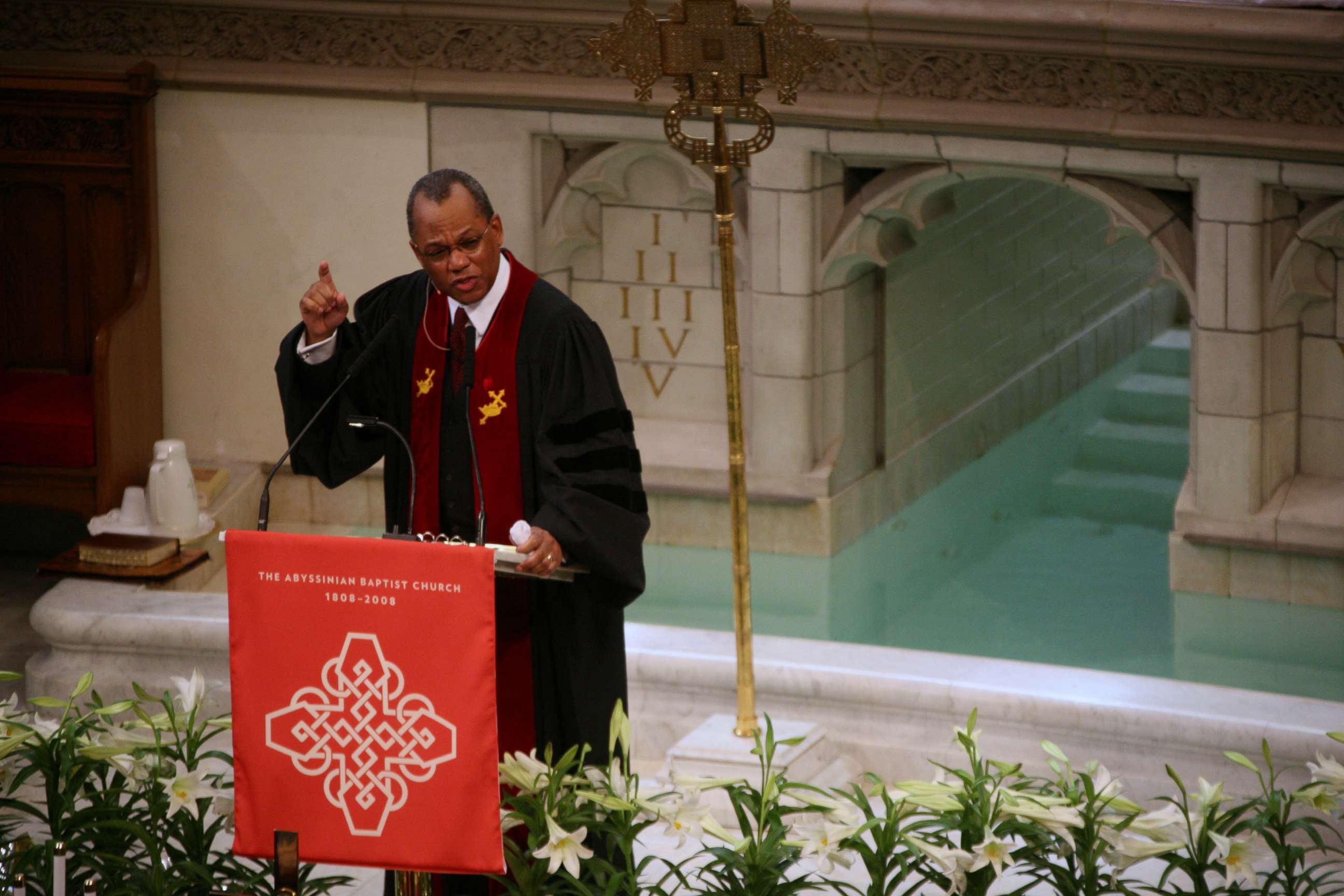
Churches now welcome people of all ethnicities and backgrounds to worship together.
"Malcolm once said, if you got a cup of black coffee, it's strong, and if you want to make it weak, you put a little cream in it,'" Butts recalled, referring to Malcom X. "And then he said, too black, too strong."
"He might not be wrong, because preaching comes out of passion," Lentz chimed in. "Preaching comes out of experience. We need all kids of coffee though."
Lentz received backlash and "a lot of white silence" in some circles when he said "Black Lives Matter" from the pulpit: "Someone explained, 'You have to say all lives matter.' I said, 'Why would I do that? All lives are not in question right now, Black lives are. So around here, we're going to say Black lives matter.'"
In contrast to the Civil Rights Movement of the '60s, the primary founders of the Black Lives Matter movement are not clergy, and are not men.
Some young activists, like 16-year-old Chelsea Morton, the daughter of a pastor, exemplify how faith can be a motivator during this powerful moment in history.
"Black Lives Matter may not be clergy-led, but I do see the splashes of spirituality," she told ABC News. "I see the faith that is within the people. Because that faith, that drives people to hope, and that drives people to fight."
Reciting a Bible verse from the Old Testament, Morton said, "Isaiah 1 says that, 'As Christians, we have to do good, seek justice and correct oppression.'"
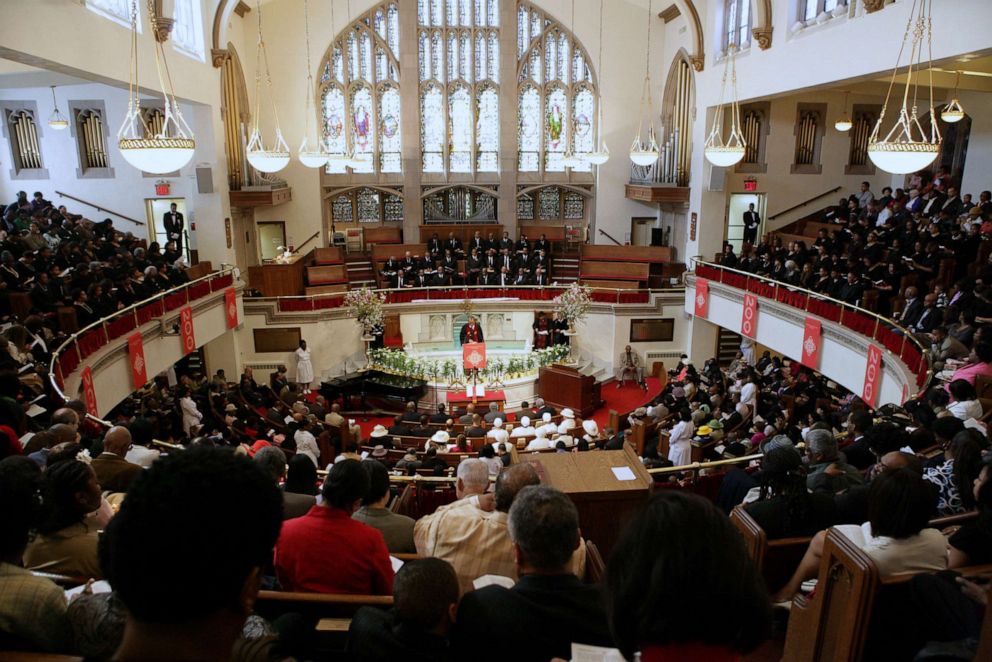
"Not everybody has to be on the front lines of a protest, but with your life, you have to protest this," Lentz said. "That's what being a Christian is."
The Black church has stood proud in protest to both promises denied and dreams deferred for centuries and Butts believes that it will continue to be a source of lightness coming out of darker days.
"When the dust settles and the smoke clears," he said, "there's going to be one central institution that's going to be key to people of African descent. That's the church."
